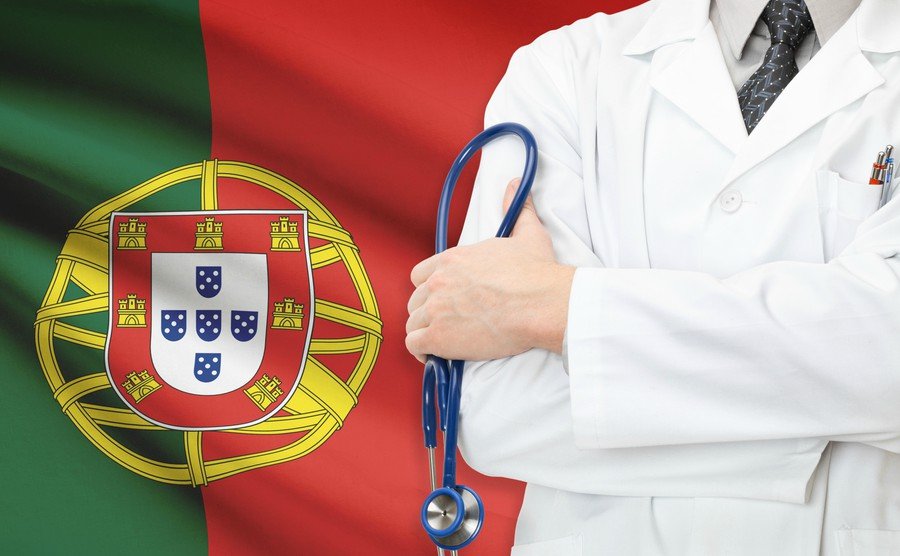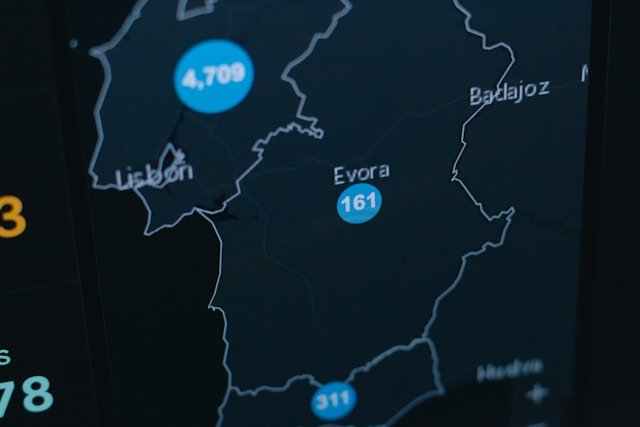Portuguese Health System
Hello, my name is Ismail Siddiky, and welcome to Europe Diary.
Today I’m talking about the Portuguese Health System.
1. Portuguese Health System Rankings and Life Expectancy
Did you know that Portuguese healthcare is ranked number 12 by the World Health Organization in terms of overall performance? For example, Canada is number 30, the United States is 37, and Russia is 100 and 37. Not only that, Portugal has one of the highest life expectancies in Europe and the world as well, and you might have guessed it right in today’s video, we’re going to be talking about healthcare in Portugal.
2. Why Choose Portugal for Medical Tourism?
Why do people choose Portugal for medical tourism? How different are Portuguese hospitals from Canadian hospitals, whether they are planning to move to Portugal or just curious to see how things work in Europe?
3. Overview of the Portuguese Healthcare System
3.1 Public and Private Healthcare
Well, this blog was made for you and without further ado let’s get started. First, let’s take a look at how this works. Portugal has a universal healthcare, which is public health care and private healthcare. The public healthcare is available to all citizens of legal residents and is funded from taxes. Private healthcare is also available. It’s a bit more pricey than the public one as pretty much everywhere in the world. However, the quality of Portuguese healthcare is on another level. It is really, really good. The facilities are very new. If we’re talking about, let’s say, private hospitals, the service, the people. It’s amazing.
4. Eligibility for Coverage
4.1 Who is Covered?
I’ve been to both private and public hospitals and I have something to tell you. But first, let’s dive into who can get the coverage for, let’s say, public health care. Well, pretty much anyone with legal status. This means if you have a valid residence permit, for example, you came here to study, you came here to work, you moved here to retire, you have a residence permit. And you will be covered by Portuguese healthcare.
4.2 Special Cases
In addition, there are certain groups that are not legal residents, but they are still covered. For example, children under 18 who have visited Portugal, pregnant women who are in Portugal for less than 90 days, and wards from countries that have an agreement with Portugal.
5. Costs and Registration
5.1 Public Healthcare Fees
Even though the public healthcare is free, there might be some extra fees associated with certain treatments and services. For example, there might be fees associated with hospital stays, prescriptions, and some kinds of tests, but those fees are not super high. They’re pretty affordable for everyone.
5.2 Registration Process
An important thing to know is that you’re not automatically covered once you move to Portugal. You need to register for both public and private healthcare. First, you will need to get a card that’s called Cartão de Utente, which is basically a health card or health number that you will need when you’re gonna go to a hospital. But first, you need to get your NIF, which is your taxpayer number. Once you get your NIF, you take your NIF, your passport, your proof of accommodation (so let’s say your contract), and you go to Centro de Saúde. This is basically like a medical center, I guess, where you take all this stuff and ask for your health number. Once you get your number, you can book appointments with doctors in both public and private hospitals.
5.3 Family Doctor Requirement
It is important to note that you might need to get your family doctor first, similar to Canada, similar to the States, before booking things. However, if you go to a private hospital, you might not need a family doctor.
6. Private Hospitals in Portugal
6.1 Registration Process
Yeah, and speaking of private hospitals, you basically need the whole same thing. You get your Cartão de Utente number or SNS number. Then you go to a hospital, fill in some papers, and you’re good to go.
6.2 Comparison of Public and Private Hospitals
As I mentioned before, I’ve been to both public and private hospitals here in Lisbon and Portugal. I mean, they both are amazing. In terms of wait times, of course, some of the doctors might be harder to book. For example, my friend booked an appointment with a gastroenterologist in January for April because, I don’t know, apparently people eat a lot of fatty foods, drink lots of beer, so they all have digestion problems. But generally, for example, in private hospitals, I can book my appointments for the next day. I recently developed an allergy or like asthma, I booked my appointment with an immunologist the next day—like no waiting, no nothing.
6.3 Booking Appointments
Speaking of booking, you can do everything online. Each hospital has its own application where you can go and book your appointments, your consultations, your exams. Similarly, for public healthcare, you can go to the website SNS 24 and book everything you need there. You can also call if you prefer to, but I mean, you have a website, you have an application—just go and book everything.
7. Wait Times and Personal Experiences
7.1 General Wait Times
A very important thing to know about public hospitals is that the wait times, even for general appointments, might take some time. So when we moved to Portugal, we wanted to exchange our driver’s licenses, and in order to do that, you will need a health certificate, like a typical “whatever he can see, he can hear, whatever he can drive.” So we went to a public hospital in September. We were like, “We need to get that paper.” The response was, “Yeah, I’m going to schedule an appointment, blah blah.” December 24th, final Merry Christmas. I’m like, “What is happening? It’s September.” The response was, “Well, that’s the earliest I can give you.” We literally found a private doctor who did everything the same day. We paid like, I don’t know, 30 euros. Was this 30 euros worth it? Absolutely, because we waited for three months to get one piece of paper that literally says he can drive, even though I had my license for 12–13 years. Like, thank you, but no thanks.
7.2 ER Experiences
And another interesting story about waiting times: Oh, my Canadian and American friends will love it. So, my best friend Marco had to go to the ER. It took them one hour, in and out. That’s it. So, he spent 30 minutes waiting for the doctor to see him and then 30 minutes doing exams and x-rays. In Canada, if you are in the ER, you can wait for, I don’t know, 24 hours. Like I know a person who waited for literally a whole day with a broken arm because they were like, “Well, you’re not dying. Here’s some Tylenol, like ibuprofen.” They said, “Come tomorrow, tomorrow by 10 AM you’ll get in,” and he was like, “Thank you.” And on top of that, my friend Marco paid 40 euros for his entire visit.
8. Teleconsultation in Portugal
8.1 Remote Consultations
A fun fact about the Portuguese healthcare system: Portugal has a very developed teleconsultation system, which basically allows you to have your consultations from anywhere you want. This is especially helpful if you live somewhere like in a smaller city, in a village, or even like in the field, you can book your consultations online remotely. Of course, if you need to see a doctor because you have, like, I don’t know, some kind of a rash, maybe it would be better to go see a doctor in person because they’ll need to see you. But if it’s a follow-up consultation, if it’s something that doesn’t require you to be physically there, you can just book a video consultation. That’s it.
8.2 Personal Experience with Teleconsultation
To be honest with you, I don’t think I’ve seen some of my doctors in real life. Ever. We just talk on Zoom. That’s it. As I’ve said before, sometimes you don’t even need a family doctor to book your appointments, and this is amazing. You don’t need to go through all these doctors just to get to the one you need. So I had a knee injury many, many years ago, and I know there’s something wrong with it because when I walk, it clicks. So it’s like, I need to see the knee doctor. Instead of going to a family doctor, asking for a referral, and then going to a knee doctor, I literally just went to my app, searched for the doctor I needed, booked an appointment. That’s it. This is amazing because the whole Canadian thing was like going through a family doctor—it drives me nuts. Like, I know what I need—well, not in all of the cases, but sometimes or like in most of the cases. I know that. Like, I’m sneezing, I need to see an allergy doctor. I have a knee problem, I need to see the knee doctor, so this is amazing. I’m not sure you can do that in a public hospital, but in a private one, for sure you can do that.
9. Prescriptions and Continuity of Care
9.1 Prescription Process
Another thing to mention about the Portuguese healthcare system is prescriptions. If you’re coming from another country, you have your set of pills that you’re taking. When you come to Portugal, your doctor will prescribe similar pills to what you’re taking, so don’t worry. The only downside is that in order to get prescriptions, you will probably need to see your family doctor. But as I said before, when it comes to consultations, you can go to any doctor.
9.2 Experience with Multiple Doctors
And another cool thing about the system is that it’s very synchronized. This means, for example, your general doctor, your gynecologist, and your dermatologist can access your profile and all your prescriptions. So you don’t necessarily need to have just one family doctor for everything. Your file will be accessible to all of your doctors and I think this is super helpful because you can see multiple specialists without being tied to a family doctor.
10. Language and Communication
10.1 Language Barriers
If you don’t speak Portuguese, don’t worry. You can still receive good healthcare in Portugal. Many of the doctors in private hospitals speak English, but it’s always good to check before making an appointment if you don’t speak Portuguese.
10.2 Practical Tips for English Speakers
There are plenty of English-speaking doctors around the country, especially in cities like Lisbon and Porto. But if you’re in a small town, it’s always a good idea to double-check the language options before heading in.
Conclusion
So, to wrap things up, I hope this article has given you a good insight into the Portuguese health system. It’s efficient, affordable, and accessible for both residents and visitors. Stay tuned for more posts on my website, and I’ll see you in the next blog!


